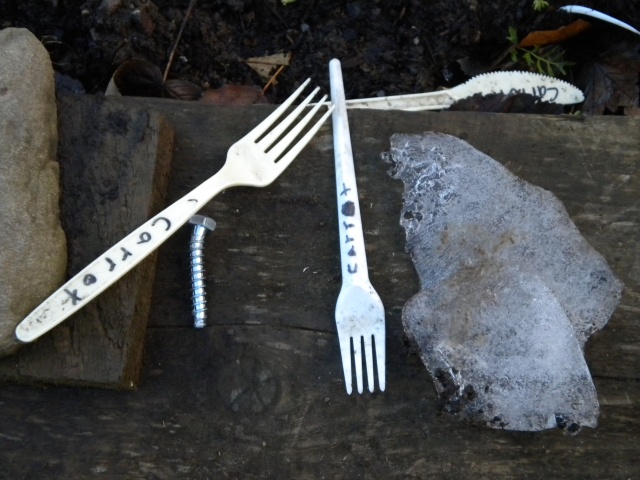Cardiff Council is offering three hundred new allotment plots to the city as part of its allotment strategy, however there are still 1,069 people on the waiting list. So why are allotments in such popular demand, and what can be done to meet the needs of Cardiff citizens?
Jenny Howell, who currently runs the Riverside Community Garden Allotment Project, describes allotments as the perfect compromise for city dwellers who enjoy being out in the open air: “They are great if you’re living in the city but haven’t got a big garden. It’s really nice to have a piece of land which you can dig over and use to grow your own veg. It’s good to do something outside in the fresh air which is a bit more than just a walk in the country.”
According to Jenny, the recent surge of interest in allotments can be attributed to a number of factors, the most prominent being that, nowadays, most people’s jobs involve being indoors: “I would say some people feel they’re stuck in front of their computers all day and are motivated by just wanting to get out.” Jenny also believes that having an allotment has become much more socially acceptable, and that allotments and activities associated with them are consequently becoming increasingly fashionable amongst young people.

Winter is an exciting time for the allotment as there are many projects going on in preparation for Spring and Summer.
Jenny discussing the community garden’s Winter projects
Indeed, cooking a meal made from organic ingredients, maintaining an attractive garden or even keeping a micro pig as a pet are all in vogue nowadays. But being in touch with nature hasn’t always been so chic, as Jenny explains: “I was in my late 20s when I started my own allotment and it was considered a weird thing to do. I suppose traditionally it tended to be people who were retired which did that sort of thing. While that’s still the case, there’s a lot more about this kind of subject on the telly nowadays. And it all ties in with environmental issues; sustainability, climate change, food, good eating, healthy living – things which young people are a lot more tuned into.”
Jenny talking about the people that come to the community garden

A variety of people of different ages visit the allotment. In the centre is Tate, 7, in the yellow jacket is Tate's mother Lisa, and on the front left is Malcolm, who builds the garden's cob ovens.
An interview with Tate and his mother Lisa
One young person who’d certainly agree with Jenny is vegetarian chef Deri Reed. Deri, 25, has recently launched his own vegetarian catering business: ‘EthicalChef’. Each week Deri sets up a stall at Riverside Market where he and his team prepare and sell local, organic, vegetarian food. Deri is a regular visitor and fan of the community garden, disproving the stereotype that allotments are just for older people: “It’s becoming more trendy,” says Deri. “It’s a hot topic. I think subconsciously people would like to know more about how to survive in a world which isn’t already set up for you.”

Deri (furthest right) previously worked at a world class vegetarian restaurant in Ireland and had a work placement at Hugh Fearnley Whittingstall's River Cottage,
With regards to the council’s new allotment strategy, Deri says: “300 new allotments is amazing, but it’s not enough”. Jenny Howell echoes Deri’s sentiments, saying that the introduction of the new allotments is to be celebrated, but that more things can happen as well. According to Jenny, there are always allotments which are untended for long periods of time, which is why she believes the council should increase self management and encourage people to make quicker decisions on site in order to speed up the turnover.
Jenny discussing the untended allotment plots and the new forest garden
To start addressing the increasing demand for allotments, the council intends to bring one former allotment site back into use, says Executive member for Sport, Leisure and Culture, Councillor Nigel Howells: “In addition, we are developing a programme of work to provide an estimated additional 273 plots for cultivation over six existing sites”. According to Howells, the council is currently analysing the responses to a survey they have conducted of all plotholders, and their aim is to encourage more allotment sites to be self managed in order to maximise their income generation for future site improvements from both lottery and grant sources.
Jenny says that many people who want an allotment realize how much hard work they are after receiving one. As a result, they often become discouraged and give up. To Jenny, this is why community gardens are such a great alternative: “I think community gardens are brilliant because they give people the opportunity to come along and see if they like it, then if they really get the bug and they feel it’s not enough, they can go off and get their own allotment.” Unlike having an allotment, there’s no responsibility or commitment with a community garden; something which many people prefer. Perhaps community gardens are one way of remedying the frustration of those on the waiting list, in addition to easing the pressure on Cardiff council.
Further information about Riverside Community Garden Allotment Project








Pingback: CF Hub » Blog Archive » Hope for Cardiff